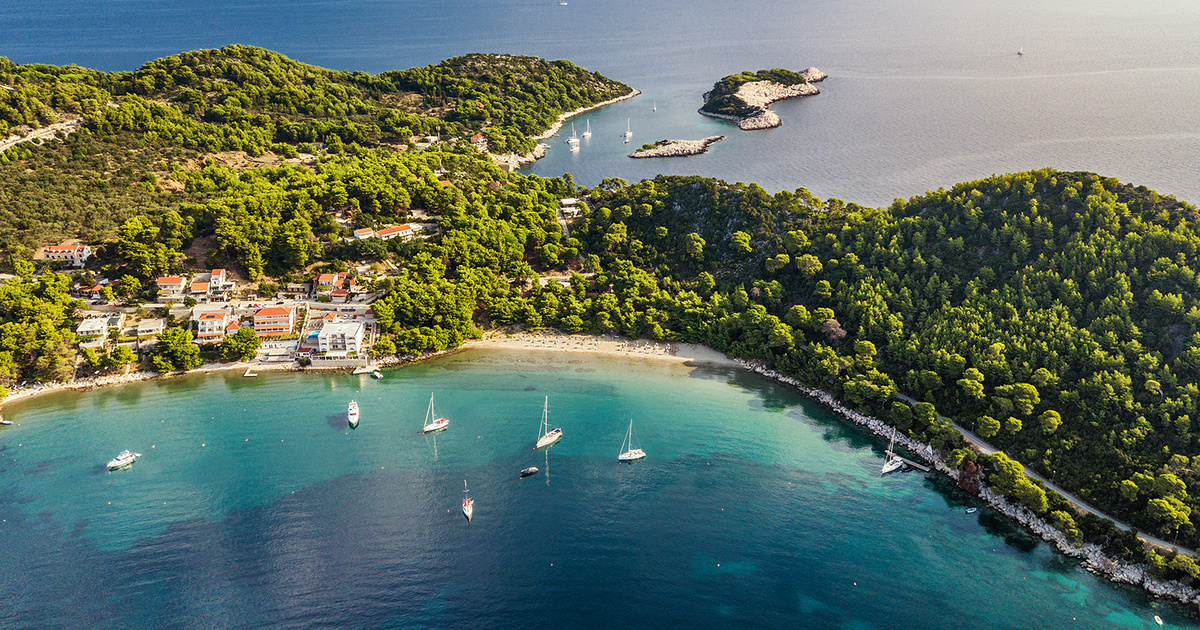The article was supported by the Croatian Tourism Association.
Croatia is one of the most popular destinations for Hungarians, but in addition to the capital, popular seaside resorts and historic cities like Split or Dubrovnik, the country also offers unique experiences for travelers who prefer lesser-known places and want to hide from the hustle and bustle of the city. The hustle and bustle of the world. Here is a selection of Croatia's most beautiful hidden gems.
Sablonara Beach
Located on the island of Mljet, Sablonara is one of the last hidden gems on the Adriatic Sea. The bay, bordered by pine forests, remains largely untouched, and its beauty is a true balm for the soul. The name Saplunara comes from the Latin word Sabalum, which means sand. There are two sandy beaches in the bay, one larger and one smaller. As the largest remaining coastal sandy habitat in Croatia, Saplunara is home to many plant species found nowhere else in Croatia and is therefore considered a protected area. The sandy beach is bordered by a pine and juniper forest, where there is a small settlement.
Photo: Alexander Gospich
Lastovo Island
With 46 small islands, 46 churches and chapels, 46 vineyards and sandy beaches surrounding it, it is a true paradise for lovers of nature, sailing, good food and wine. The island, located on the edge of the Dalmatian archipelago, was a closed military zone until 1989. In addition to its pristine natural beauty, it is also famous for its carnival, in which all the inhabitants of the island participate in beautiful folk costumes. Lastovo's special tourist attractions are the famous ornate chimneys, which were once a status symbol for local families. Lastovo can be easily reached by ferry from Split, Dubrovnik, Mljet and Korčula.
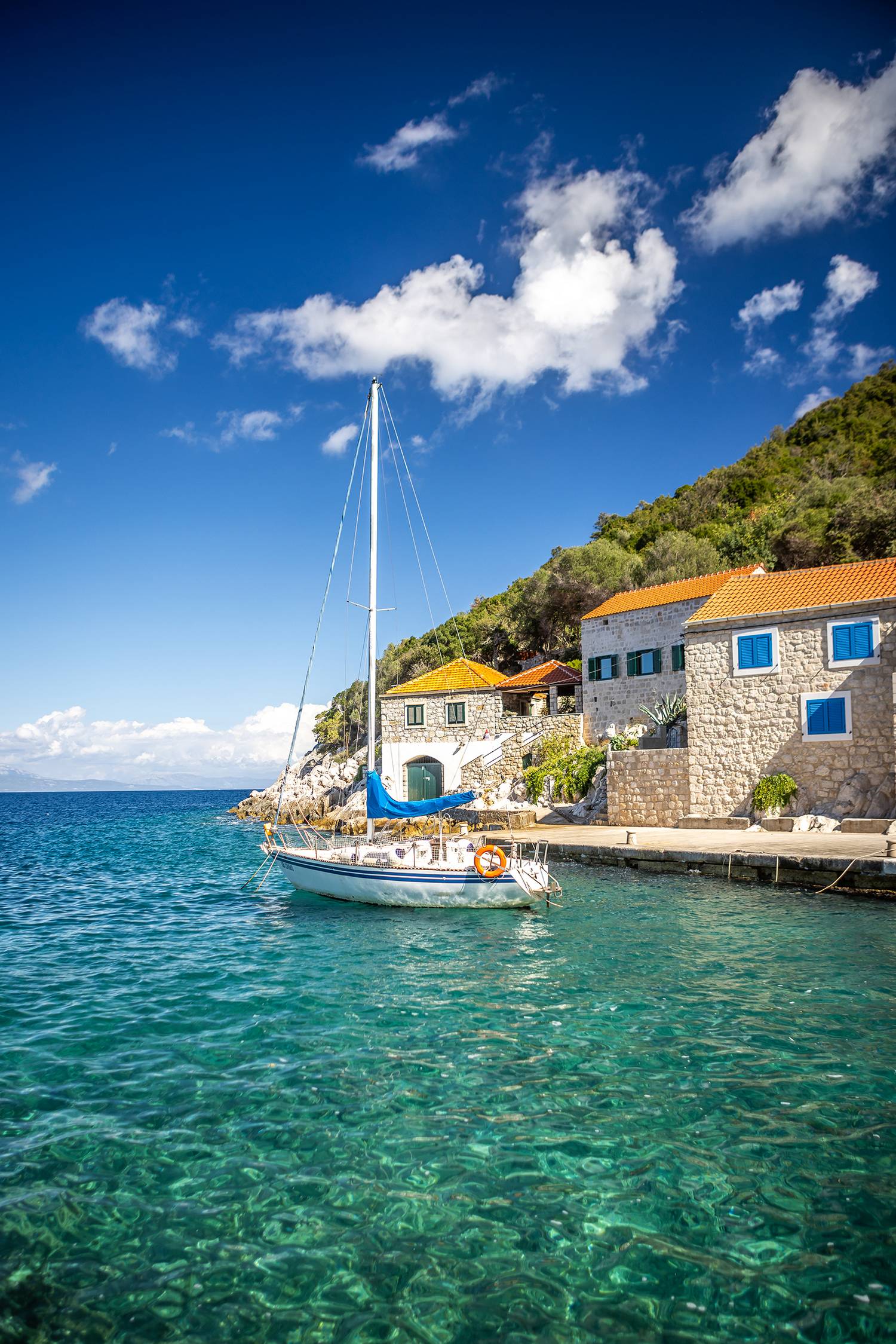
Photo: Julien Duval
Rab Island
Also known as the Island of the Blessed, Rab is a true gem in the Kvarner Gulf region. This holiday paradise is primarily known for its countless velvety sandy beaches, but natural attractions such as the idyllic geopark, the majestic mountain landscape with the Kamenjak Observatory and numerous secluded natural coves, partly characterized by soft sand, are also breathtaking. One of the most beautiful landmarks of the island is the city center of Rab, which is considered one of the most important historical old towns in Croatia. The highlight of the island is the delicious rabi cake, a traditional cake made with almonds and maraschino liqueur, the original recipe of which dates back to the 12th century.
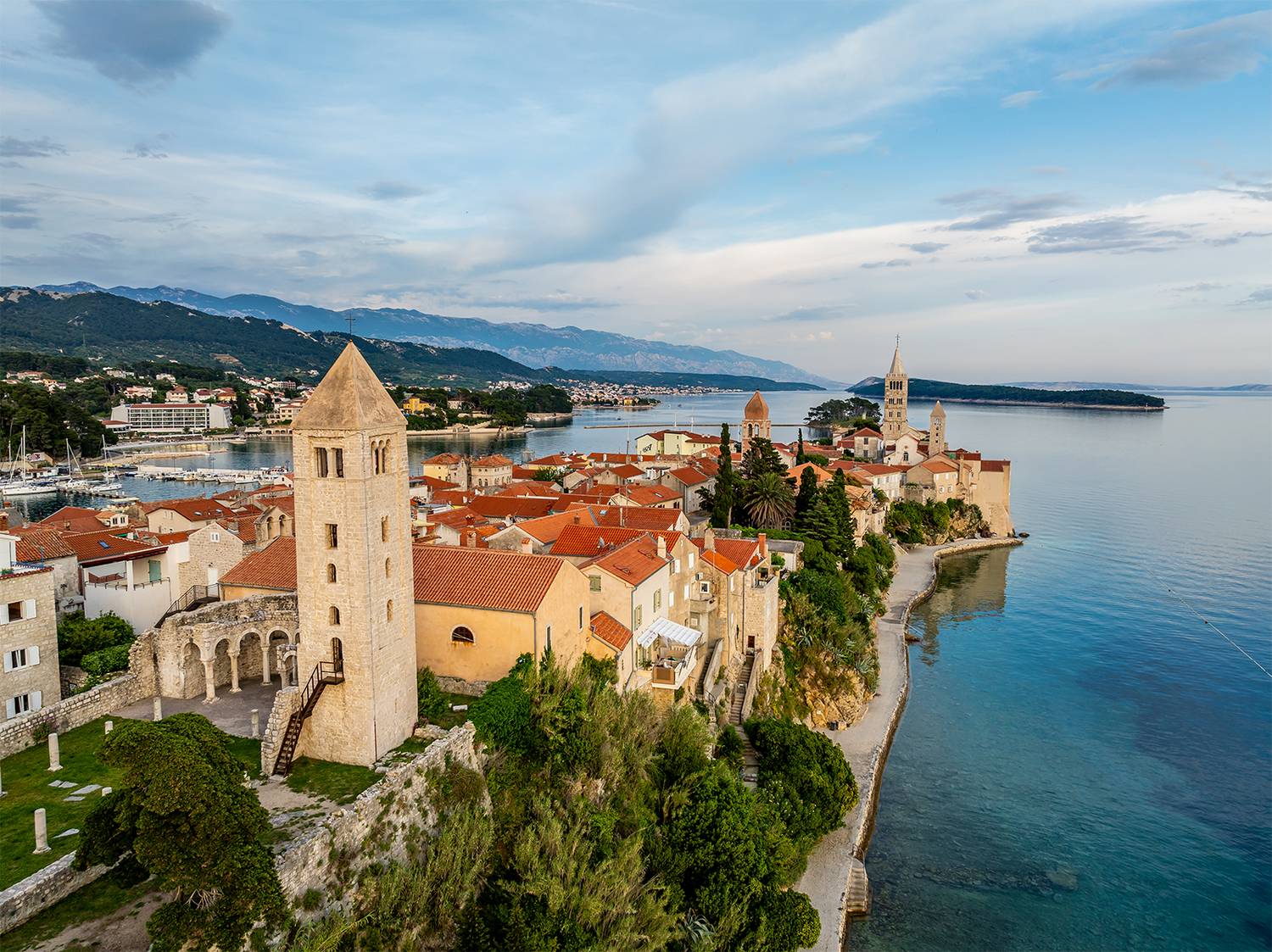
Solta Island
Solta Island is located in the immediate vicinity of the cities of Split and Trogir and is a popular destination for boaters. However, Šolta offers much more than just comfortable overnight accommodation for boaters near Split; The island is the scene of Illyrian mythology, ancient fishponds, medieval poetry, a rich maritime tradition and a growing center for winemaking and Mediterranean culinary specialties. At the westernmost point of the island is the old fishing village of Maslenica, which today is known as the most beautiful small port in Croatia under the Martinis Marche Castle on the southern side of the bay. The castle was built by the Alberti family in 1708, and today it operates as a modern hotel.
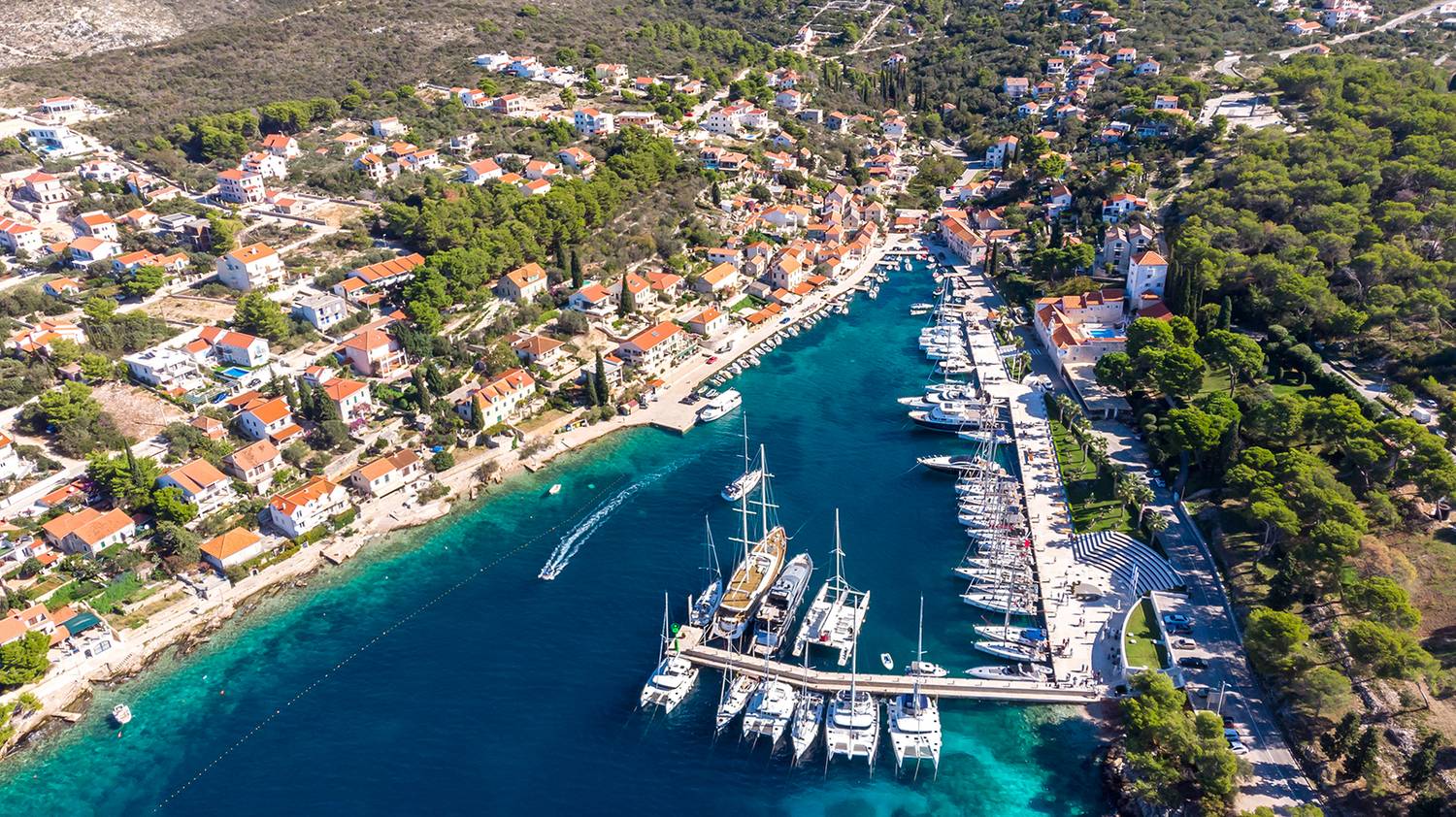
Photo: Klement Grijic/Shutterstock
Bishevo Island
Bicevo is a small island located at the southwestern tip of Vis Island, with an area of only 6 square kilometers and a permanent population of only 20 people. Its highlight is the stunning Blue Cave (Modra špilja in Croatian) in Balun Bay, although the island has a total of 26 caves. Light enters the 24-meter-long and 12-meter-deep Blue Cave through an opening, which – at noon – creates a glowing, sparkling blue light effect on the water in the cave, while the cave itself glows blue. Bishevo has no running water or shops. The island is also completely car-free.
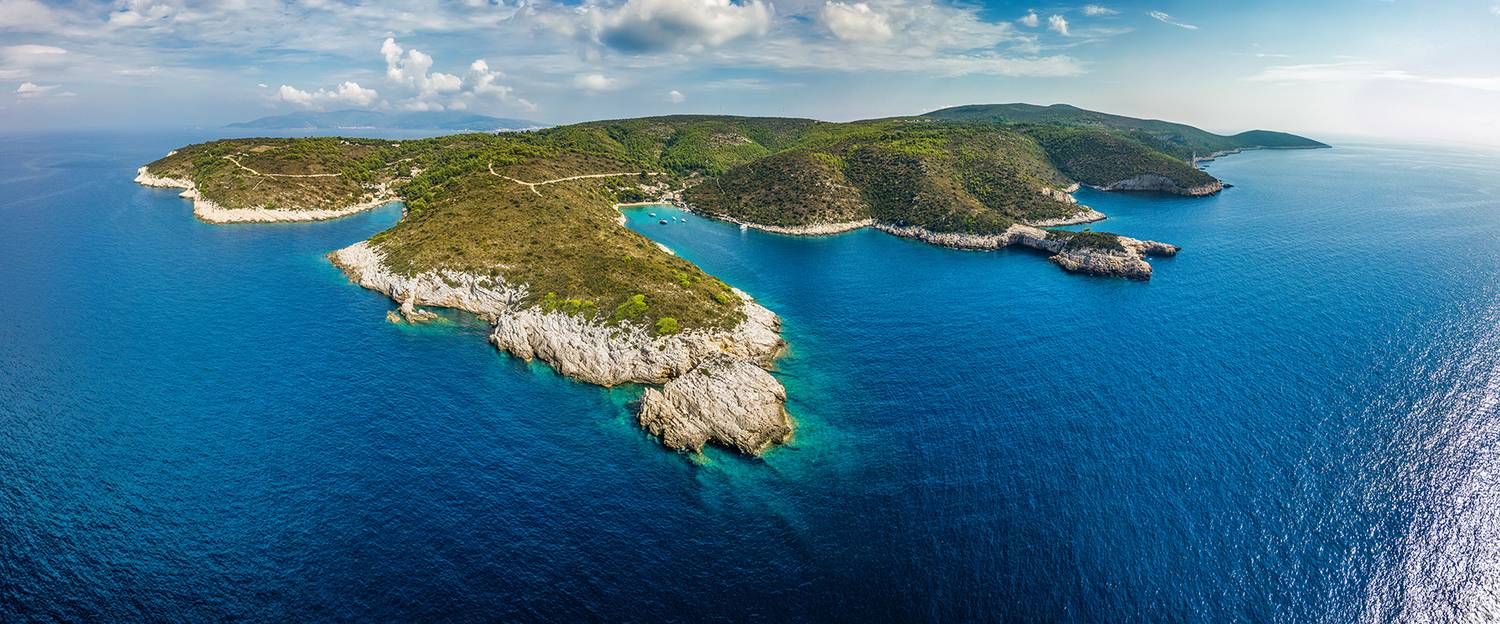
Photo: Alexander Gospich
Brac Island
The island of Brac (pronounced “Brač”) is located in central Dalmatia, and it is here that the highest point of the Croatian archipelago, Vidova Gora, is located. Despite its proximity to Split, Brac is less visited than the sparkling islands of Hvar and Korčula further south. Brač is famous for its olive groves and a variety of rare Pohavica olives. Back in 1655, the Venetian Senate insisted that the island be planted with olive trees, and fines were imposed on anyone who wanted to damage the trees. In Brac, you can find more secluded beaches, historic medieval town centers and plenty of mountainous areas.
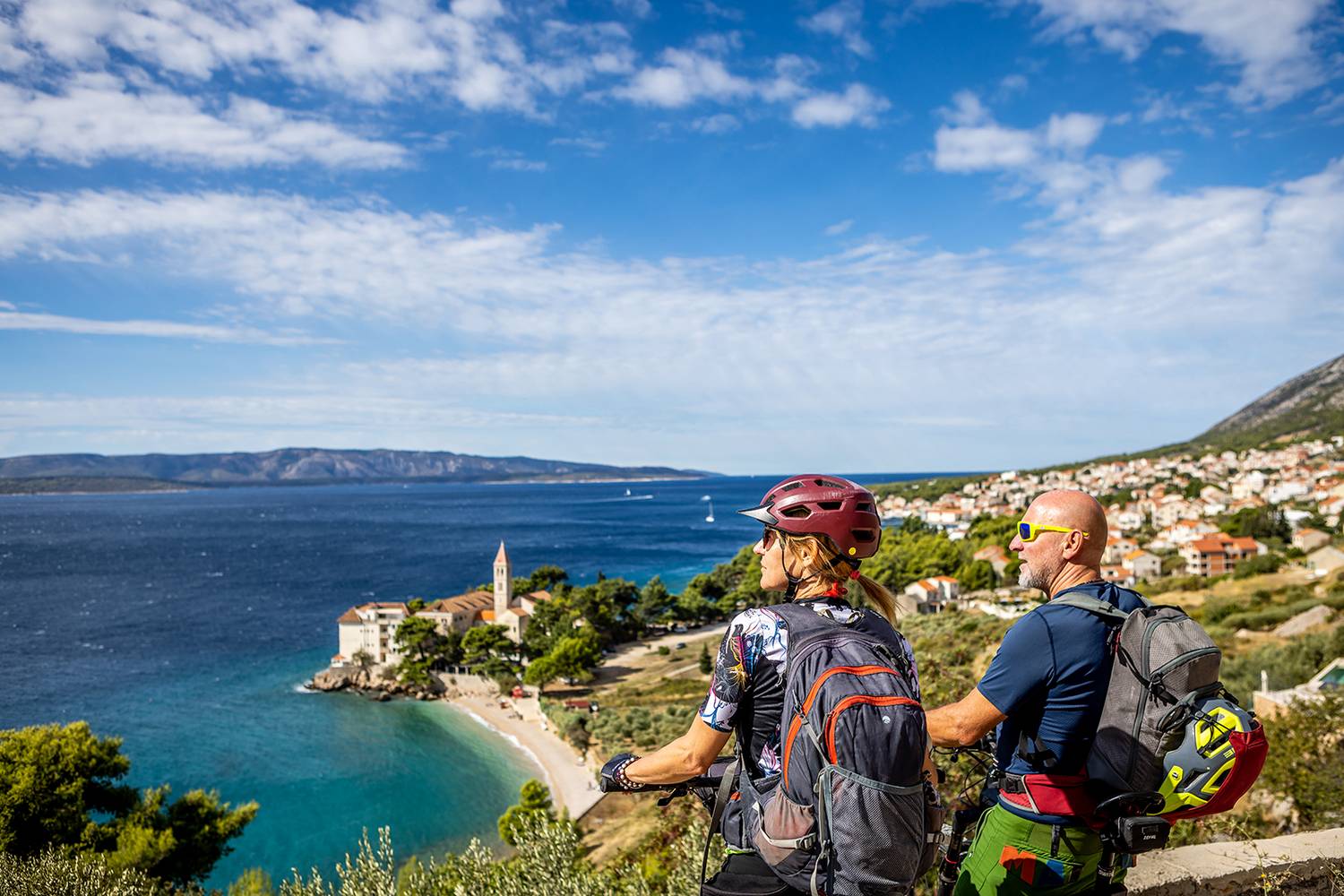
Photo: Julien Duval
Brijuni National Park
Brijuni National Park is one of the most beautiful archipelagos on the Istrian Peninsula. Its wildlife is extremely rich, with over 150 different species of birds living here, but the archipelago is full of monuments and architecture to explore from the time of the Byzantine Empire and the Austro-Hungarian monarchy. Most of the islands are so small that they are uninhabited. The largest of them, Veliki Prijeon, can be visited. There is a safari park featuring African animals, and nearly two hundred dinosaur footprints have also been discovered, which is why life-sized replicas of ancient creatures can also be found on the island. Josip Broz Tito's residence, the White Villa, is located in Veliki Prijeon.
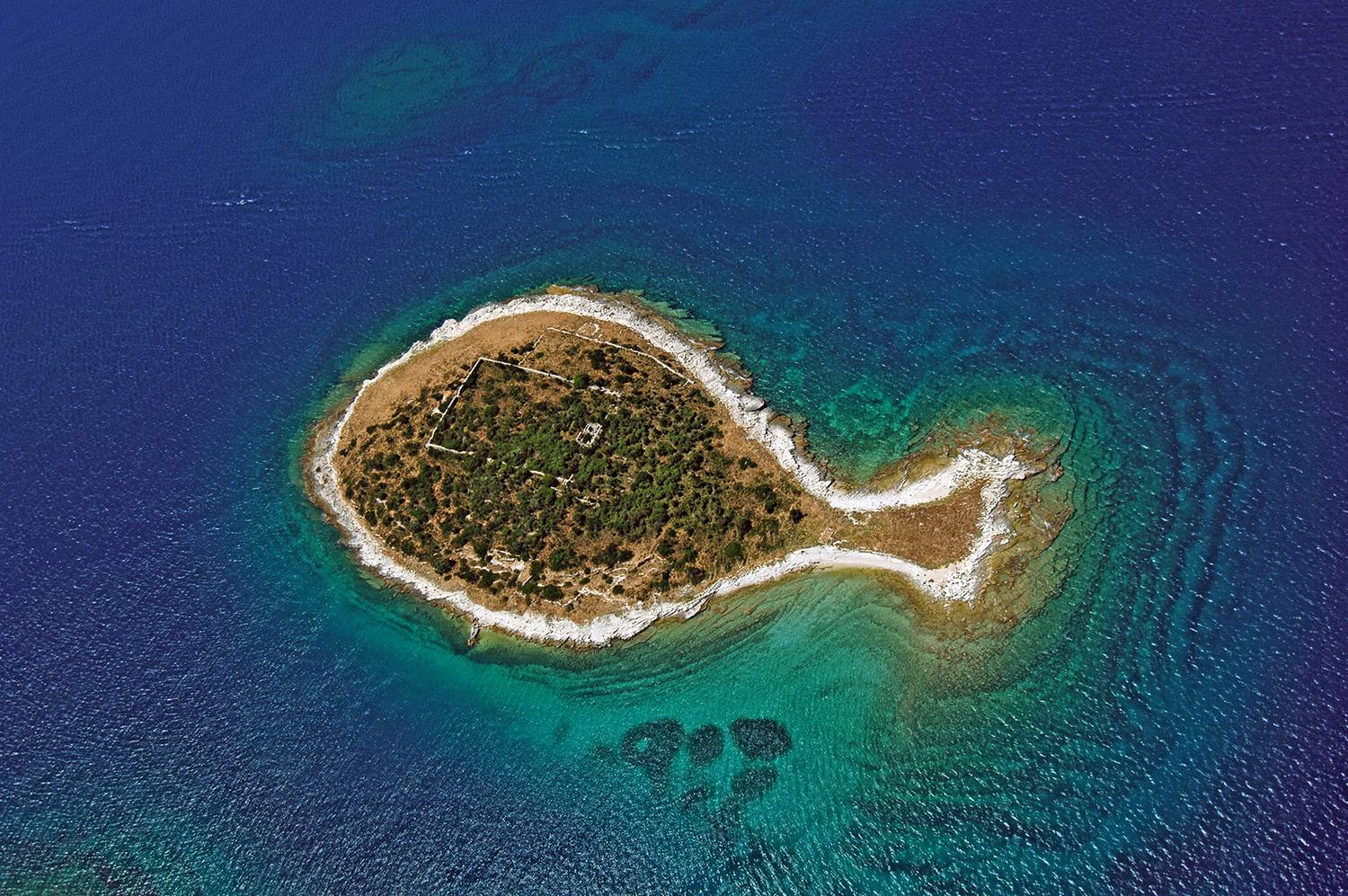
Photo: Rinko Kucinošić
Stari grad
Most tourists rush via Stari Grad to Hvar Town, although Stari Grad, which curves around the bay, has much to offer, especially for history buffs, as it dates back to BC. It dates back to the year 385, when it was still a Greek colony. Compared to Hvar city centre, Stari Grad is a quiet and slow place; The stone buildings and streets of the old town have been beautifully restored, and the roads and paths are ideal for exploring by bike. Castles and mountain towers, the remains of early Christian churches, and the ancient library of a monastery founded in 1482 and destroyed by the Turks in 1571, are all waiting to be discovered. It is worth trying the traditional dessert “starogrojski paprenjok”, made with honey, flour, saffron, prosecco and olive oil, and is a protected cultural asset.
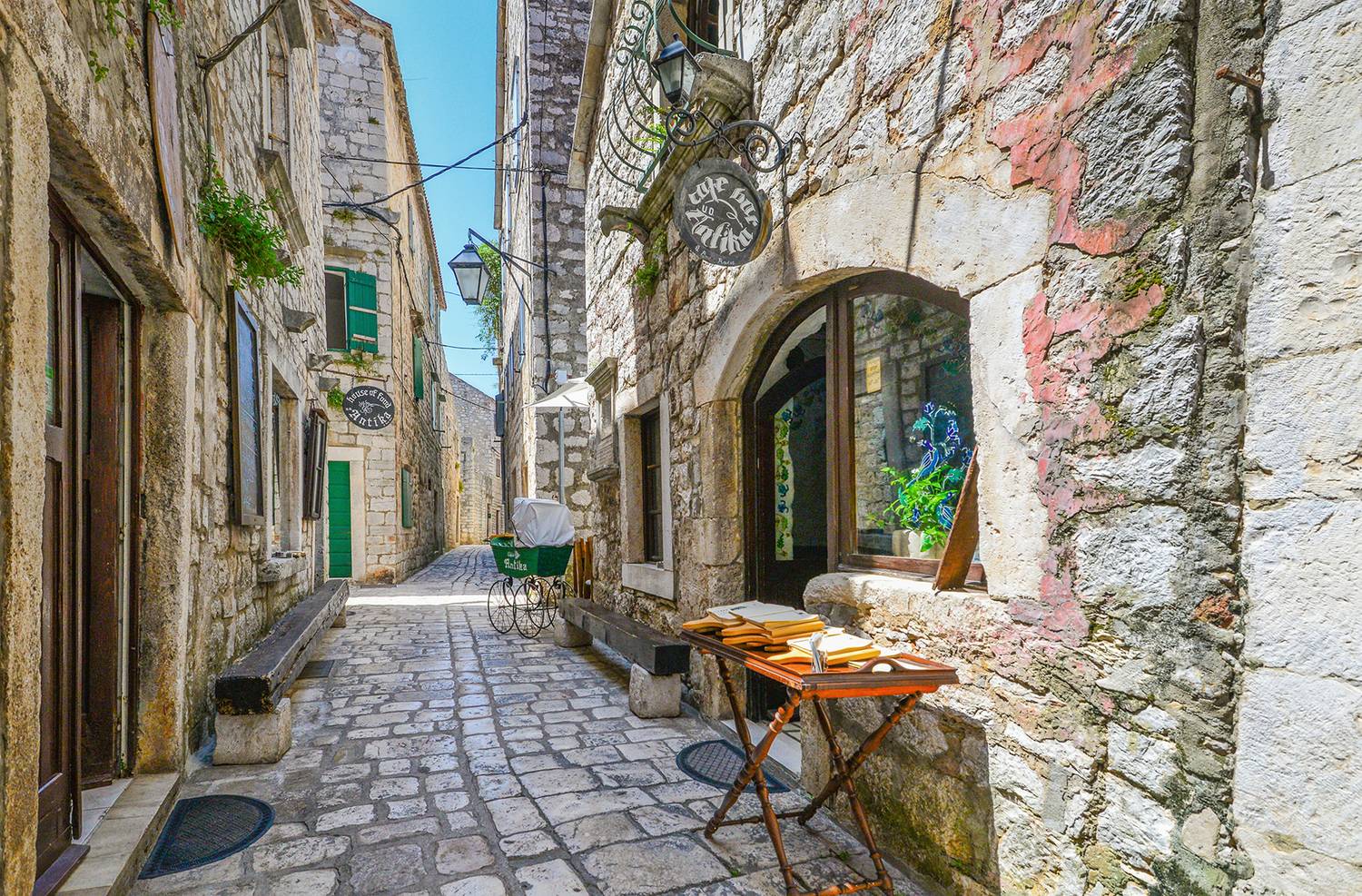
Photo: Vejko Begovic
Pag Island
As we crossed the famous bridge of Pag Island, we were immediately struck by the barren, rocky and vast landscape of Pag Island. The island is often referred to as the “Island of the Moon,” because it is like walking through the landscape in space. In addition to the quartz formations, the island is surrounded by the clear and bright blue Adriatic Sea. Hidden coves and beaches surround the island on all sides, so don't expect crowds. Pag is blessed with some of the most beautiful and magical sunsets in the world, and sunrise is an almost mystical experience. The island is world-famous for its high-quality, award-winning cheeses (Başkı Sidi), olive oils and wines. The origin of bag lace is a centuries-old tradition, originating from the Benedictine nuns of St. Margaret's Monastery. The center of the parties on the island of Pag is the Zrće Beach Festival, one of the most famous party destinations in Europe.
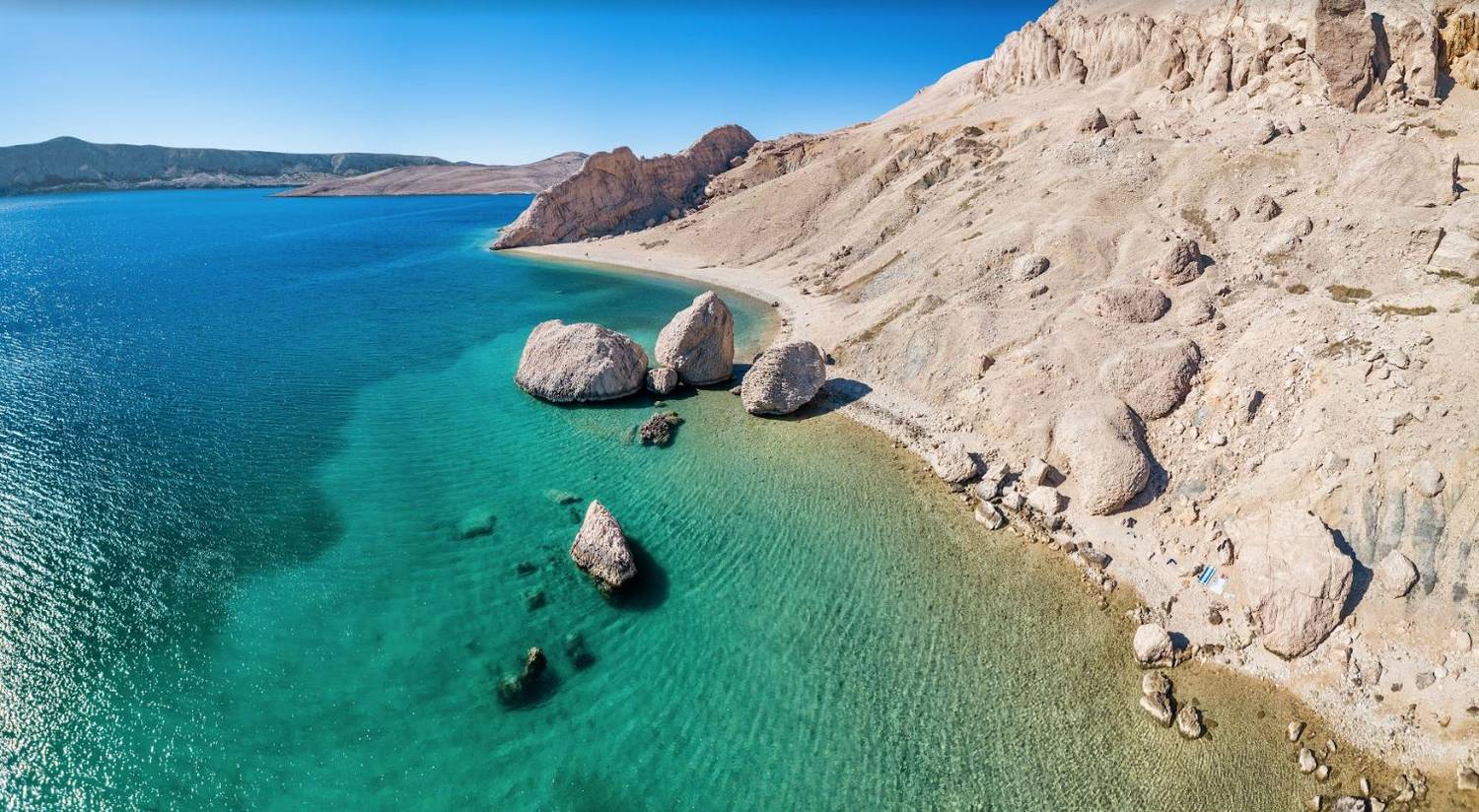
Photo: Alexander Gospich
Shiban Island
Cover photo: Vis Island/Aleksandar Gospić








































